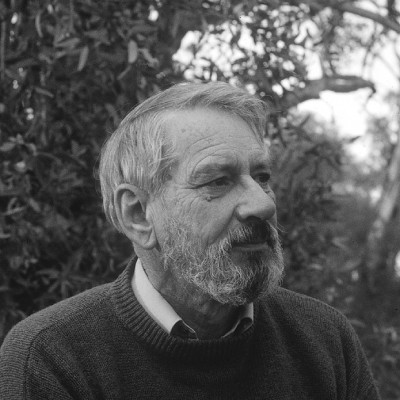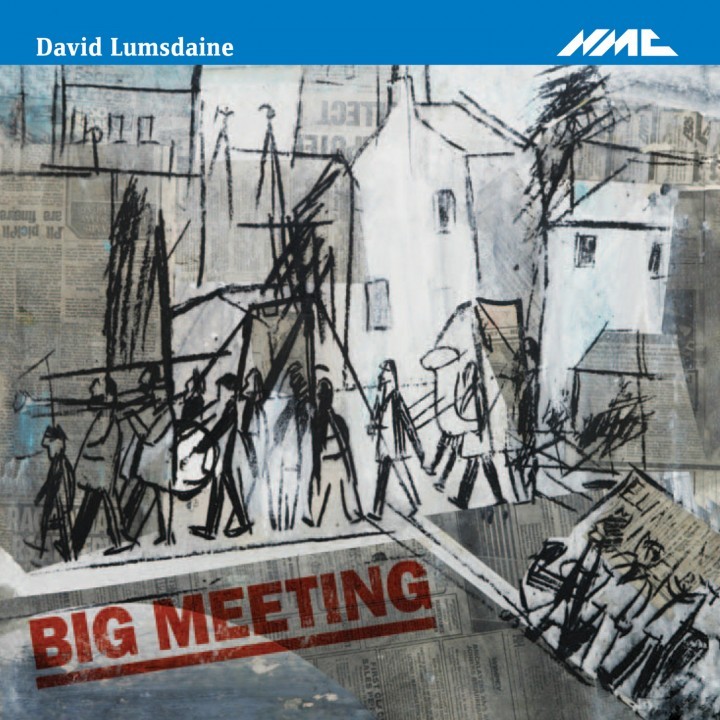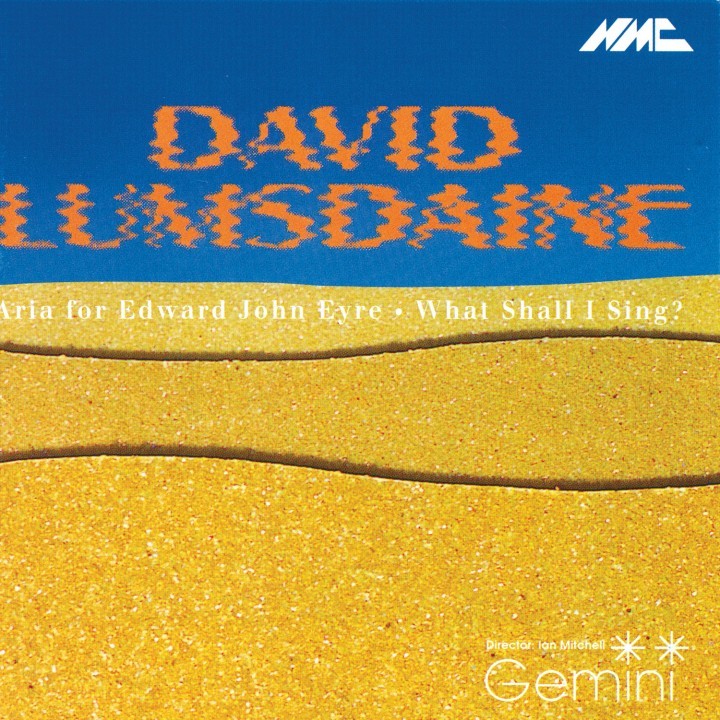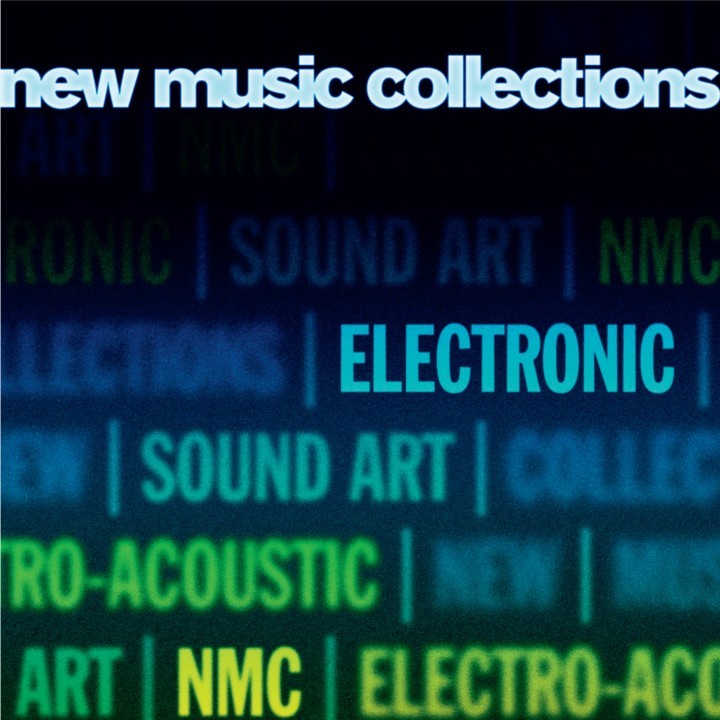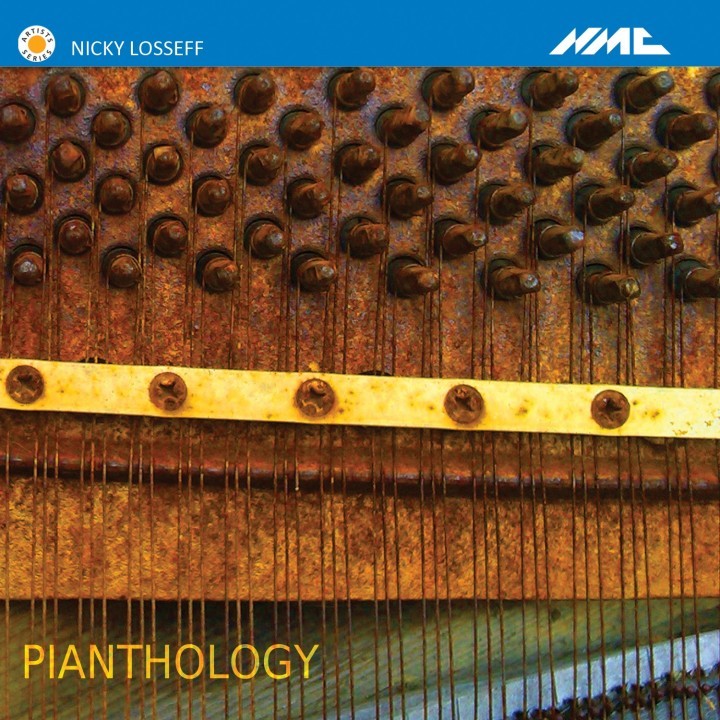David Lumsdaine
David Lumsdaine was born in Sydney in 1931 and was educated at the University of Sydney and the Sydney Conservatorium of Music. Like so many of his generation he heard London’s call and in 1953 relocated to further his career as a composer. Intellectually curious and single‑minded, he quickly established himself in London within a circle of like‑minded people, notably the Australian poet Peter Porter, with whom he collaborated extensively in the ensuing decade.
Initial studies with Máytás Seiber honed his technique. Subsequent study with Lennox Berkeley took him to the Royal Academy of Music, where by the mid-1960s he was teaching composition and had set up the Manson Room. Leaving this post in 1964 he worked as a music editor for Schott and Universal Edition (his first publisher). It is from this period that his first acknowledged works date: Annotation of Auschwitz (1964), which sets Porter’s text of the same name, Easter Fresco (1966), for soprano and ensemble, and Kelly Ground (1966), for solo piano. These works display his technical facility and give a glimpse of his imaginative breadth.
When Peter Zinovieff established EMS Putney, Lumsdaine was an early visitor, composing the electronic works Nursery Rhymes (1969) and Bourdon with a Bell (withdrawn). When the BBC commissioned him to write the incidental music for Alan Burns’ Babel, he made use of the sounds of London in a work of musique concrète. Much in demand as a teacher, he took up a lectureship at Durham in 1970, where he immediately established an electronic studio with Peter Manning. In 1971 he recorded the Durham Miners’ Gala, later composed as Big Meeting.
Fuelled by his visit to Australia in 1974 (the first of many), the decade was particularly productive. It resulted in numerous chamber works, including the influential Aria for Edward John Eyre, which incorporated live electronics and pre‑recorded materials, the piano solo Ruhe sanfte, sanfte ruh, and the orchestral work Hagoromo, which was commissioned for the BBC Proms.
In 1981 he returned to London where he became a Senior Lecturer at King’s College London, a post that he shared with the composer Nicola LeFanu, whom he had married two years earlier.
Lumsdaine was fascinated by birdsong, to which much of his music responds (the piece for solo piano, Cambewarra, is a prime example). During the 1980s he made a series of soundscape recordings that were commissioned by the ABC: Lake Emu, Meunga Creek, River Red Gums and Butcher-birds at Spirey Creek. Two other CDs of soundscapes were released in the 1990s: Cambewarra and Mutawinji.
Before retiring to York in 1994, his final years as a composer were marked by several substantial, vivid and energetic works – Mandala V, A Tree Telling of Orpheus, A Garden of Earthly Delights and Kali Dances.
David Lumsdaine was born in Sydney in 1931 and was educated at the University of Sydney and the Sydney Conservatorium of Music. Like so many of his generation he heard London’s call and in 1953 relocated to further his career as a composer. Intellectually curious and single‑minded, he quickly established himself in London within a circle of like‑minded people, notably the Australian poet Peter Porter, with whom he collaborated extensively in the ensuing decade.
Initial studies with Máytás Seiber honed his technique. Subsequent study with Lennox Berkeley took him to the Royal Academy of Music, where by the mid-1960s he was teaching composition and had set up the Manson Room. Leaving this post in 1964 he worked as a music editor for Schott and Universal Edition (his first publisher). It is from this period that his first acknowledged works date: Annotation of Auschwitz (1964), which sets Porter’s text of the same name, Easter Fresco (1966), for soprano and ensemble, and Kelly Ground (1966), for solo piano. These works display his technical facility and give a glimpse of his imaginative breadth.
When Peter Zinovieff established EMS Putney, Lumsdaine was an early visitor, composing the electronic works Nursery Rhymes (1969) and Bourdon with a Bell (withdrawn). When the BBC commissioned him to write the incidental music for Alan Burns’ Babel, he made use of the sounds of London in a work of musique concrète. Much in demand as a teacher, he took up a lectureship at Durham in 1970, where he immediately established an electronic studio with Peter Manning. In 1971 he recorded the Durham Miners’ Gala, later composed as Big Meeting.
Fuelled by his visit to Australia in 1974 (the first of many), the decade was particularly productive. It resulted in numerous chamber works, including the influential Aria for Edward John Eyre, which incorporated live electronics and pre‑recorded materials, the piano solo Ruhe sanfte, sanfte ruh, and the orchestral work Hagoromo, which was commissioned for the BBC Proms.
In 1981 he returned to London where he became a Senior Lecturer at King’s College London, a post that he shared with the composer Nicola LeFanu, whom he had married two years earlier.
Lumsdaine was fascinated by birdsong, to which much of his music responds (the piece for solo piano, Cambewarra, is a prime example). During the 1980s he made a series of soundscape recordings that were commissioned by the ABC: Lake Emu, Meunga Creek, River Red Gums and Butcher-birds at Spirey Creek. Two other CDs of soundscapes were released in the 1990s: Cambewarra and Mutawinji.
Before retiring to York in 1994, his final years as a composer were marked by several substantial, vivid and energetic works – Mandala V, A Tree Telling of Orpheus, A Garden of Earthly Delights and Kali Dances.
Recordings by this composer
RecordingsCompilations with this composer
CompilationsRelated composers
Related composersExternal Links
Music Map
Discover more about the classical music of today with NMC's Music Map, and exciting and educational online tool which enables you to see and hear the connections between composers, their teachers, pupils, influences and their works.
Music Map
